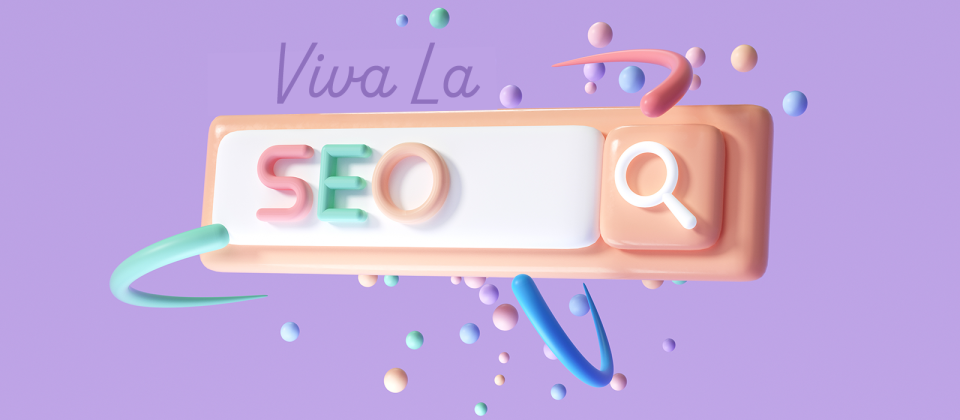
Content
How different industries are using AI for digital marketing in 2025
Feb 14th, 2025Artificial intelligence is significantly reshaping customer interactions in 2025. This year, an estimated 19 out of every 20 customer interactions will be assisted by AI. With AI practices potentially increasing leads by up to 50%, many brands are leveraging AI to enhance their digital marketing strategies, drive business growth, and deliver more personalised and immersive customer experiences.
At Click, we’ve been analysing these trends and have found that personalisation, immersive and engaging experiences, chatbots, and data analysis are among the most effective uses of AI in digital marketing. Brands have already seen success in leveraging AI to advance these marketing efforts – below are some of the best examples of how brands across a variety of industries are using AI for digital marketing in 2025.
Personalisation
Personalisation is not new to digital marketing, though AI has revolutionised its implementation, making it significantly easier for brands to tailor content, ads, and experiences.
Amazon (eCommerce)
Amazon’s AI product recommendations use machine learning and algorithms to analyse a customer’s browsing history, purchase behaviour, and preferences to create personalised recommendations.
Their AI driven product recommendations drive approximately 35% of their total sales.
Salesforce (Professional services)
Salesforce has developed an AI engine called Einstein, which uses customer data to create customisable, predictive, and generative AI content and experiences tailored to specific business needs.
Through their AI implementation, Salesforce empowers businesses to build stronger customer relationships, improve operational efficiency, and drive significant growth. The platform’s AI-driven capabilities demonstrate the transformative potential of AI in professional services, allowing for more intelligent, data-driven, and personalised interactions.
FitBit (Health & wellness)
Fitbit uses the data gathered from users such as activity levels, sleep patterns, heart rate, and weight to generate personalised recommendations and targeted marketing.
They analyse individual trends and provide tailored insights, such as suggesting specific workout routines based on past performance, recommending sleep adjustments based on sleep quality, and delivering targeted marketing campaigns based on user goals and demographics – all aimed at motivating users to improve their health and wellness habits.
Netflix (Streaming)
Netflix excels at using AI to analyse user viewing history. This includes:
- What is watched
- How long it is watched for
- When it is watched
- How often it is paused or rewound
They use this data to not only predict what content their users are likely to enjoy but also show different imagery that is likely to entice the user to click on a certain program. Sophisticated AI algorithms analyse data and take into consideration factors like actors, release year, time of day, and the device used to watch to make their suggestions.
This has been extremely successful for the streaming platform, as they made approximately $1 billion annually from AI-personalised recommendations.
Immersive and engaging experiences
AI-powered augmented reality (AR) is transforming how consumers interact with brands online. AR applications can provide hyper-relevant and personalised experiences. This seamless blend of digital and physical worlds is providing brands with innovative new ways to reach and engage their target audiences.
Warby Parker (eCommerce)
Warby Parker uses a form of augmented reality (AR), a type of AI, to enhance the online shopping experience. They have a “virtual try-on” feature on their website, which allows customers to see how different frames would look on their faces using their device’s camera.
This strategic implementation of AI addresses a key challenge in online eyewear retail – the inability to try on glasses before purchasing. Several other brands such as Sephora, Burberry, and Pandora offer similar services online for make-up, clothing, and accessories.
DFS (eCommerce)
In a similar way, furniture companies like DFS are leveraging AR to enhance the online furniture shopping experience. Recognising that visualisation is a key factor for purchasing furniture, DFS uses a custom AI feature which allows customers to use their smartphone cameras to see how different furniture items would look in their own homes.
Chatbots
AI-powered chatbots are becoming increasingly popular, with 62% of businesses planning to include chatbots in their practices. These chatbots can provide instant customer support, answer questions, and guide users through the purchasing process, which improves customer satisfaction and allows human employees to focus on more complex issues.
Chatbots are becoming an increasingly popular feature across industries. Below are two examples of chatbots from the eCommerce (H&M) and the professional services (Progressive insurance) industries – both of which use the chatbot feature as a primary point of contact for customer service.
H&M (eCommerce)
Progressive (Professional services)
Data analysis
Data analysis powered by AI allows businesses to gain valuable insights into customer behaviour, preferences, and trends. Below are a few examples of how this data-driven approach is enabling brands to produce highly targeted marketing campaigns, optimised strategies, and ultimately, better results.
Gucci (eCommerce)
Gucci have been investing a significant proportion (11%) of their revenue into AI-enhanced analytics in order to enhance personalisation in their marketing practices, predict fashion trends and optimise inventory, and analyse Gen Z customer insights to guide product development.
These innovations have allowed the brand to continue setting new standards in luxury fashion while staying ahead of consumer trends.
Block (Professional services)
Block, a financial services company, analyses its customer data using an AI platform called Databricks Data Intelligence Platform; this platform uses data to inform its generative AI capabilities allowing them to continue improving efficiencies, help businesses get started quickly, create marketing materials, and improve product visuals, all while saving money. They do this by:
- Providing faster onboarding to their customers
- Creating AI-generated content for marketing emails, announcements, item descriptions, website copy and more
- Allowing customers to add AI generated background to their product photos to improve appearance, and elevate their aesthetic
- Reducing computing costs
Conclusion
AI is revolutionising digital marketing across multiple industries. In 2025, businesses are leveraging AI for personalised experiences, immersive technologies, chatbots, and data analysis to drive growth and enhance customer satisfaction.
As AI continues to evolve, it will undoubtedly play an even greater role in shaping the future of digital marketing.










